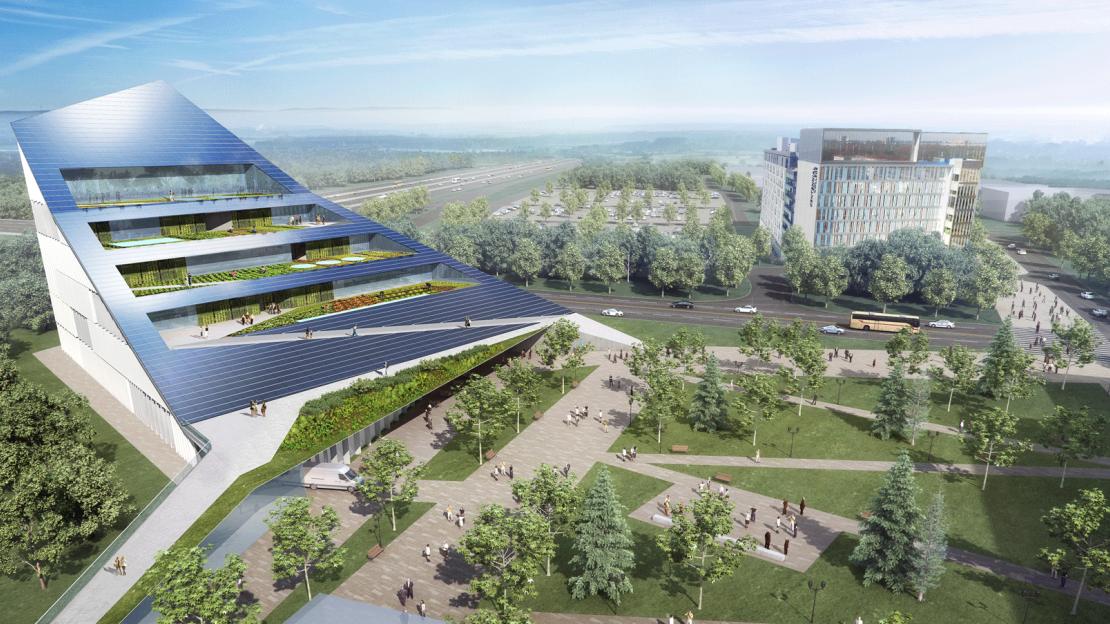It’s not science fiction and it’s coming to U of T Scarborough: a farm in the sky.
Five years from now, the northern part of the campus will look a lot different. Part of that evolution will be a building that operates as a farm.
The building will be a visible part of a research program called the Environment and Related Technologies Hub, or EARTH.
“We want it to be cutting edge,” says Biological Sciences Professor Marc Cadotte. “We want to allow opportunities for training and research.
”A familiar part of EARTH is the Environmental Science and Chemistry Building, itself a major centre for environmental research, and a LEED Gold certified structure. U of T Scarborough Chief Administrative Officer Andrew Arifuzzaman says the field is a priority for the campus.
“EARTH was started in 2008 as a way for the university to put a very strong footprint for consolidation of environmental research here in Scarborough,” Arifuzzaman says.
The building will be a partnership with Centennial College.
“During the discussion about UTSC’s priorities in the environment, Centennial College mentioned that they are looking to build a vertical farm facility,” Cadotte says. “The opportunities for partnership became clear."
The vertical farm facility would be a first of its kind on campus, where its entirety is a living interactive lab. This means a new way of learning, researching and training at both UTSC and Centennial College for students and faculty.
“Every single component of the building, from the heating and cooling, to the lighting, to the vertical farm, to a potential cafe on-site, is an element that students and the community can interact with,” says Andrew Petrou, the Director of Strategic Initiatives and External Relations at Centennial College.
Petrou says the vertical farm facility would also demonstrate a sustainable urban farming technique that could address and support food issues in the Scarborough community and country.
“The success of the facility could help create opportunities in other areas of Canada where food scarcity is an issue,” he says.
The facility creates a possibility for new programs and courses. It will primarily benefit students in the environmental science and biological science programs
“We have taken up a leadership role within the province about driving forward an environmental sustainable agenda,” Arifuzzaman says. “I think this EARTH initiative and the vertical farm will be other examples of how we can push that agenda forward and really let people see the environmental leadership that this campus has to offer.”
